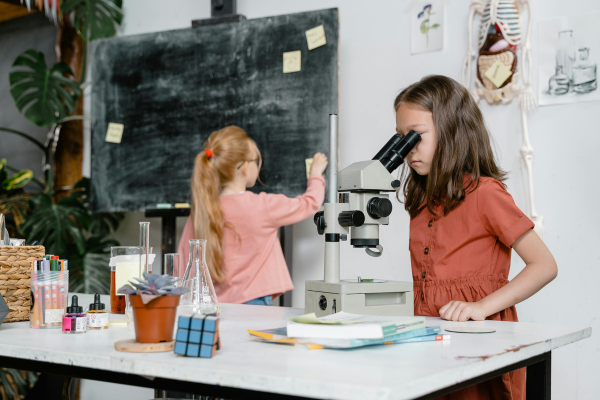
Exploring the natural world through eTwinning projects

eTwinning projects are a great way to get pupils engaged in scientific ideas and real-world challenges. They can help encourage pupils’ curiosity and a deeper understanding of nature, while helping them to develop key skills like evaluating evidence, making informed choices and applying scientific thinking in everyday life.
The following examples show you ways you can creatively integrate science into your classroom projects.
Inspiring projects
- Oceans (2024 eTwinning European prize winner, 12–15 years) took a cross-curricular approach to studying the ocean. Teachers from Spain and Italy worked together to raise awareness about environmental protection, climate change and pollution, while encouraging pupils to develop their language skills.
- ‘Natural is good, chemical is bad?’ (2024 eTwinning European prize winner, initial vocational education) tackled fake news and common myths in science, especially in chemistry. Pupils learned that not all natural substances are safe, and not all synthetic ones are dangerous.
- Engineers of the Ecosystem (eTwinning European prizes 2022 runner-up, 0–6 years) invited young pupils to design animal homes using eco-friendly materials. Along the way, they also explored how climate change affects wildlife.
- In Space Explorers, children investigated space and astronomy. They learned about the solar system and famous astronomers and space missions. Activities included taking virtual trips to the moon and building rockets from recycled materials, to make science both fun and hands-on.
'Space Explorers’ has been a transformative experience at CEIP Pinoduero: an educational journey into space that combined science, creativity and international collaboration. The eTwinning project connected pupils from various countries, promoting the use of English, digital competence and teamwork. This initiative fostered values such as sustainability and empathy. A clear example of how learning can be exciting and global from an early age.'
Aránzazu Calvo Durán, teacher involved in the project
Project kits: When science meets life
These eTwinning project kits give teachers ideas for hands-on, cross-curricular activities that help their pupils explore scientific concepts in real-world contexts.
- eTreeHuggers: This project kit shows that trees are valuable natural and cultural assets that deserve respect and protection. Pupils can explore the stories of ancient European trees and investigate their connections to local communities.
- STEAM in nature and nature in STEAM: This project kit shows how science connects with everyday life. Pupils can explore practical applications of scientific knowledge, such as the uses of the formula for the volume of a cube, or how to measure distances using only natural materials. This helps them see the relevance of STEM concepts in nature.
- From STEM to STEAM: This project kit gives teachers ideas about how to encourage pupils to think creatively and make connections between different subjects. For example, pupils can conduct experiments, engage in upcycling, explore geometry through hands-on activities and more.
Join featured groups
eTwinning has a page dedicated to Science in the featured group ‘Basic skills in action’ with activities and events on the topic, including a webinar on involving the wider community through citizen science.
Science is also highlighted in another eTwinning group: Mathematics, Science and other STEM topics.
Further reading
Additional information
-
Education type:Early Childhood Education and CareSchool Education
-
Evidence:N/A
-
Funding source:European Commission
-
Intervention level:N/A
-
Intervention intensity:N/A
-
Participating countries:CroatiaGreeceItalyPolandPortugalRomaniaSerbiaSpainUkraine
-
Target audience:TeacherStudent TeacherHead Teacher / PrincipalTeacher Educator
-
Target audience ISCED:Primary education (ISCED 1)Lower secondary education (ISCED 2)Upper secondary education (ISCED 3)
